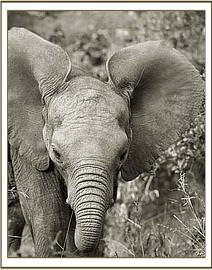Another arrival on the 4th of June, this time rescued near Kampi ya Kanzi on the slopes of the Chyulu Hills, bringing the total now in the Nairobi Nursery to 19! The Manager of Campi ya Kanzi Lodge had been searching for this calf for a couple of days, having heard reports about an abandoned calf
Another arrival on the 4th of June, this time rescued near Kampi ya Kanzi on the slopes of the Chyulu Hills, bringing the total now in the Nairobi Nursery to 19! The Manager of Campi ya Kanzi Lodge had been searching for this calf for a couple of days, having heard reports about an abandoned calf. Two days later the calf, aged about 1 year, was located, captured by the Lodge Staff and taken to the nearest airfield to await the arrival of the Rescue Plane, having alerted us earlier that they hoped to find the orphan. It is not known whether he is a victim of poaching or drought, both of which are affecting the area. What was evident is that he had walked over 22 km from where he was origionally sighted, through waterless terrain, before finally being rescued.
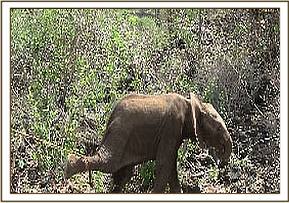

He arrived at the Nursery in the afternoon, emaciated and with diarrheoa, passing mud in a very runny stool, so was immediately put on a course of antibiotics and the usual coagulanting agents. He was very fearful of humans, but had still sufficient reserves, thankfully. Many of the orphans who have originated from the Chyulu hills and Amboseli have arrived with a tremendous loathing and fear of humans which is indicative of how the elephant community has been treated in that area. They have long suffered a great deal of harassment from a community that is not ele-friendly. We named this baby “Chaimu” the Swahili word for the lava ash, since the Chyulu range of hills are of very recent volcanic origin, with an emergent mist forest covering them, which, sadly, is subjected to illegal logging. Comprised of ash, all mist and rainwater filters through to basement rock beneath to run as underground rivers and emerge in crystal clear springs, one of which is Mzima, which provides Mombasa town’s water supply, and the other Umani springs which is the only ground water for the wildlife in the Chyulu Hills National Park. Located outside of the Park the Trust now has a lease to help protect the Kibwezi forest and the fauna and flora, and at the same time support and educate the surrounding community.
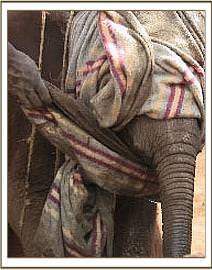
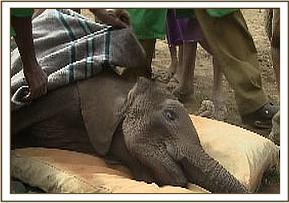
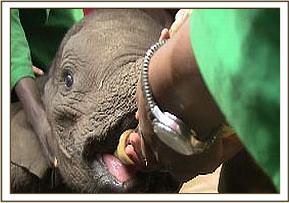
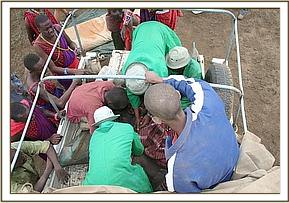
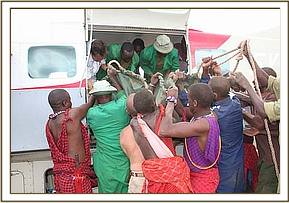

Chaimu settled into the nursery but soon a cause for concern was the fact that his one eye seemed to have no sight, and an ominous milky spot in the second eye was worrying. With the help of Dr. Swendermann both eyes have improved dramatically and we believe will return to normal with ongoing intensive treatment.
